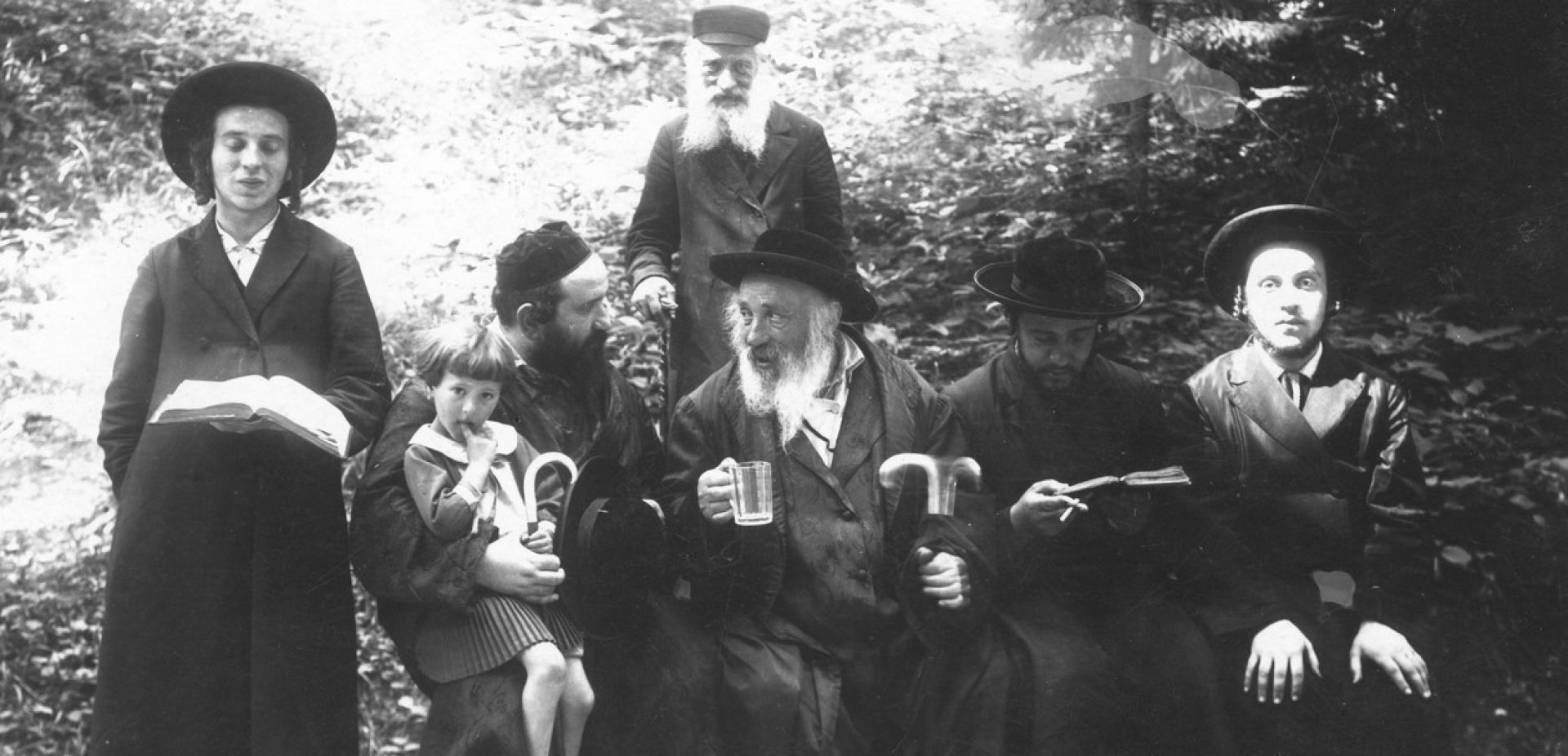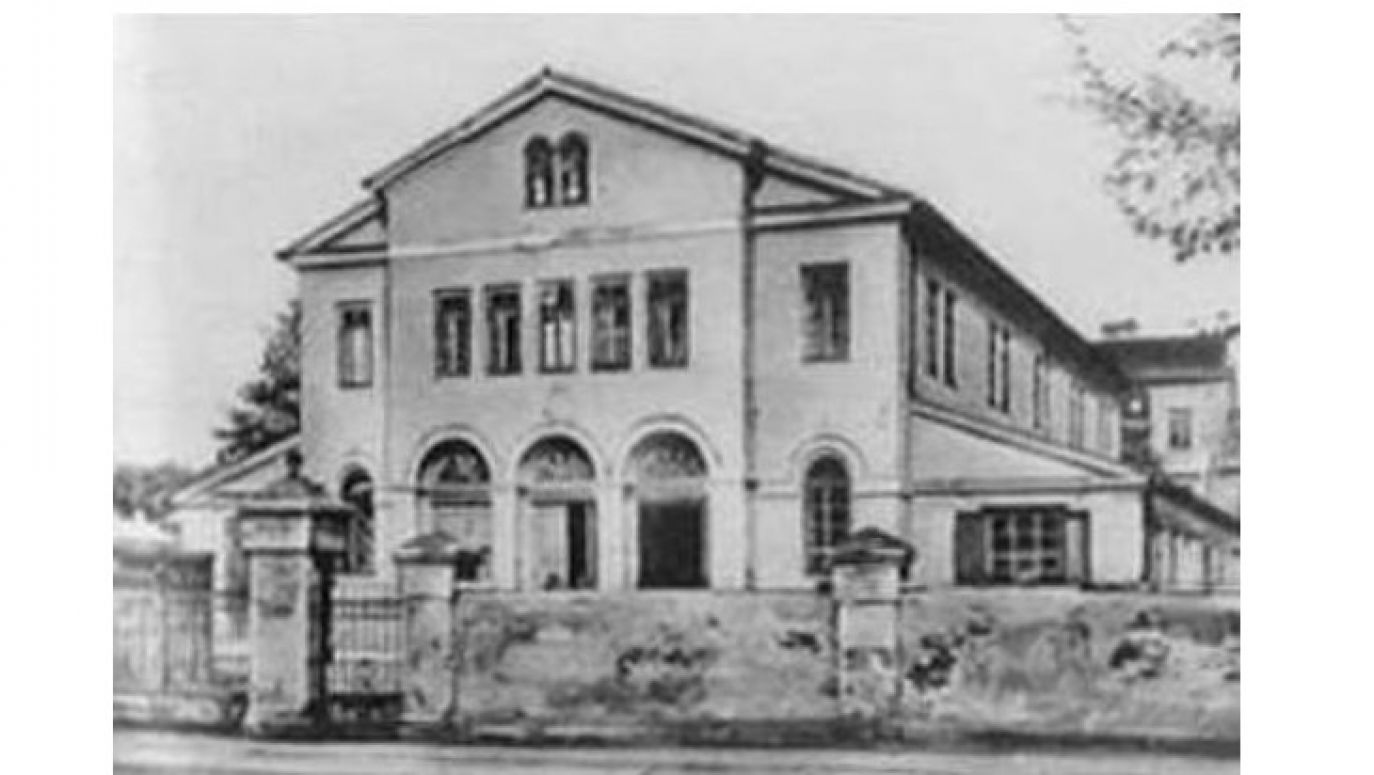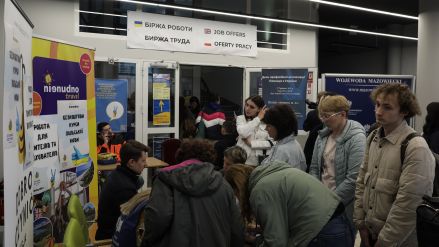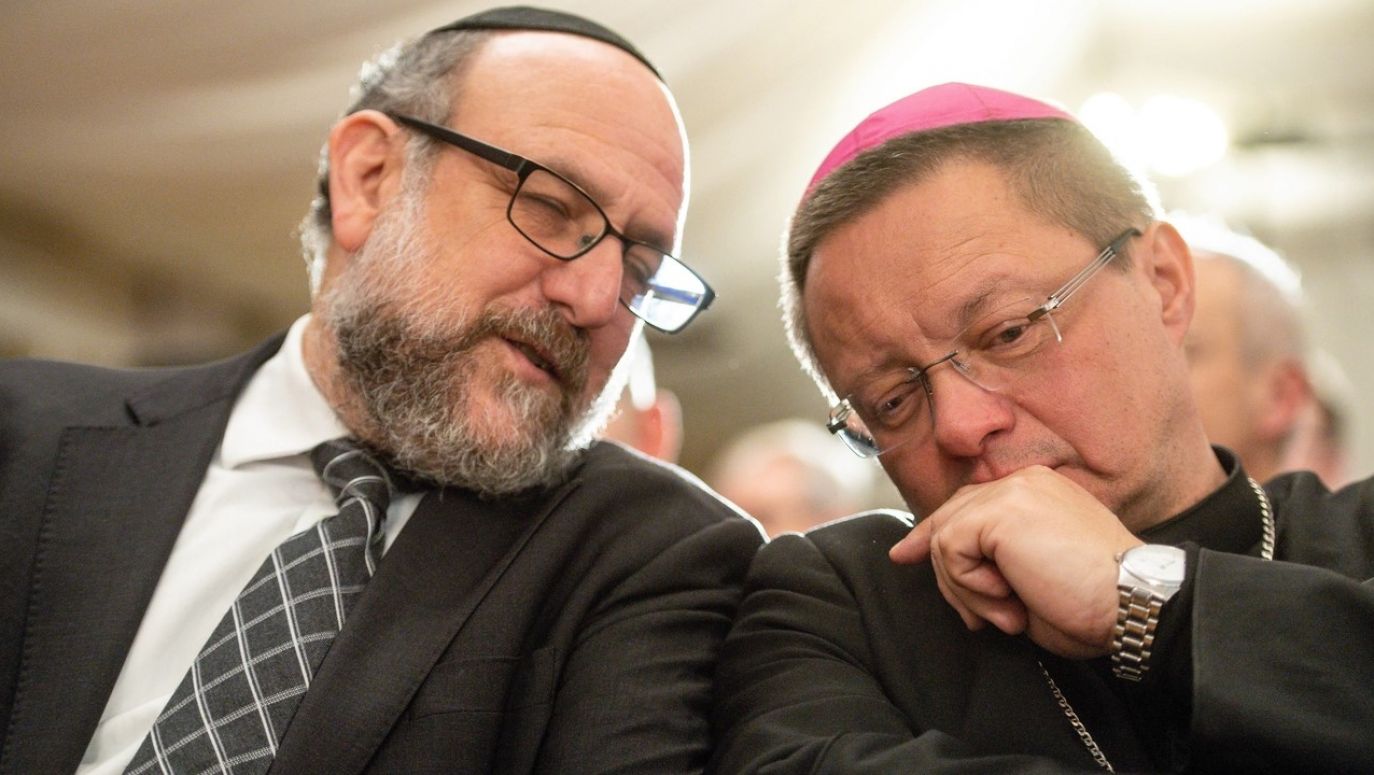For the Day of Judaism in Siedlce, in the land of the Hasidim, the invitation was accepted by Rabbi Boaz Pash, rabbi in Krakow from 2006 to 2012. Widely regarded as a man of great faith, but also of great openness towards his fellow man - he did not refuse to meet with Christians, which is not at all obvious (the great rabbi of Rome, Elio Toaff, before John Paul II's historic visit to the synagogue, is supposed to have said that each of them, he and the Pope, has his "lefebrists" who raise a shout to prevent a meeting). When the Polish Council of Christians and Jews honoured Boaz Pasha with the title Man of Reconciliation in 2013, Archbishop Stanisław Gądecki, who was present at the ceremony, said that this title leads to peace-building. And he quoted the words of Benedict XVI: "And whoever builds peace cannot fail to draw closer to God".
Rabbi Boaz Pash is a philosopher, considered an eminent expert on Kabbalah. He has worked in Kiev, Sao Paulo and Lisbon. He has published commentaries on the Torah entitled "Whispers of the Cracovian Rabbis", and listeners to his open lectures have said with delight that he is a "charismatic teacher". In Siedlce - after the history conference and before the interreligious service in the cathedral, as this is the programme planned - Rabbi Boaz Pash will give a lecture on the interpretation of the Old Testament. Catechists, leaders of parish Bible circles, priests are invited. The rabbi's delight in the Word of God will surely be shared by them.
 SIGN UP TO OUR PAGE
SIGN UP TO OUR PAGE

Historian Dr Witold Bobryk, a teacher at the Hetman Stanisław Żółkiewski IV High School in Siedlce, writes in an article prepared for KAI: "Siedlce went down in the history of the Polish Jews in a special way, as a place of gehenna inflicted on them by the Russians and the Germans. Looking back, we can see how both these nations were keen to exploit anti-Semitism in their political struggle. In Russia - as long-time Chief Rabbi of Moscow Pinchas Goldschmidt recently reminded us - 'whenever the political system was in danger, the government tried to redirect the anger and discontent of the masses towards the Jewish community'. This was the case during the revolution that swept the Empire after losing the war with Japan. In September 1906, a three-day pogrom of the Jewish population by the Russian army took place in Siedlce. However, the expected results were not achieved by the partitioning authorities. The Polish population showed solidarity with their Jewish neighbours. Aid to the victims of the pogrom was provided by an Aid Committee made up of Poles and Jews, including the canon priest Józef Scipio del Campo and Rabbi Szymon Dow Anolik".
After the Holocaust perpetrated by the Germans in World War II, very few representatives of the Jewish community remained in Siedlce. Their history was not easy either, neither was that of the entire Podlasie region. Archbishop Ryś told journalists that the conference part of every Day of Judaism has the task of documenting the memory of the Jewish presence in Polish lands. "What historians work out can become the memory of the people. Before the war, there were three million Jews in Poland, in Łódź alone there were 250,000, and today the community there numbers 100 people. I don't even know very much how to comment on this. But I do know that we must not forget," he stressed.
– Barbara Sułek-Kowalska
-Translated by Tomasz Krzyżanowski
TVP WEEKLY. Editorial team and jornalists





 SIGN UP TO OUR PAGE
SIGN UP TO OUR PAGE
 Historian Dr Witold Bobryk, a teacher at the Hetman Stanisław Żółkiewski IV High School in Siedlce, writes in an article prepared for KAI: "Siedlce went down in the history of the Polish Jews in a special way, as a place of gehenna inflicted on them by the Russians and the Germans. Looking back, we can see how both these nations were keen to exploit anti-Semitism in their political struggle. In Russia - as long-time Chief Rabbi of Moscow Pinchas Goldschmidt recently reminded us - 'whenever the political system was in danger, the government tried to redirect the anger and discontent of the masses towards the Jewish community'. This was the case during the revolution that swept the Empire after losing the war with Japan. In September 1906, a three-day pogrom of the Jewish population by the Russian army took place in Siedlce. However, the expected results were not achieved by the partitioning authorities. The Polish population showed solidarity with their Jewish neighbours. Aid to the victims of the pogrom was provided by an Aid Committee made up of Poles and Jews, including the canon priest Józef Scipio del Campo and Rabbi Szymon Dow Anolik".
Historian Dr Witold Bobryk, a teacher at the Hetman Stanisław Żółkiewski IV High School in Siedlce, writes in an article prepared for KAI: "Siedlce went down in the history of the Polish Jews in a special way, as a place of gehenna inflicted on them by the Russians and the Germans. Looking back, we can see how both these nations were keen to exploit anti-Semitism in their political struggle. In Russia - as long-time Chief Rabbi of Moscow Pinchas Goldschmidt recently reminded us - 'whenever the political system was in danger, the government tried to redirect the anger and discontent of the masses towards the Jewish community'. This was the case during the revolution that swept the Empire after losing the war with Japan. In September 1906, a three-day pogrom of the Jewish population by the Russian army took place in Siedlce. However, the expected results were not achieved by the partitioning authorities. The Polish population showed solidarity with their Jewish neighbours. Aid to the victims of the pogrom was provided by an Aid Committee made up of Poles and Jews, including the canon priest Józef Scipio del Campo and Rabbi Szymon Dow Anolik". 



